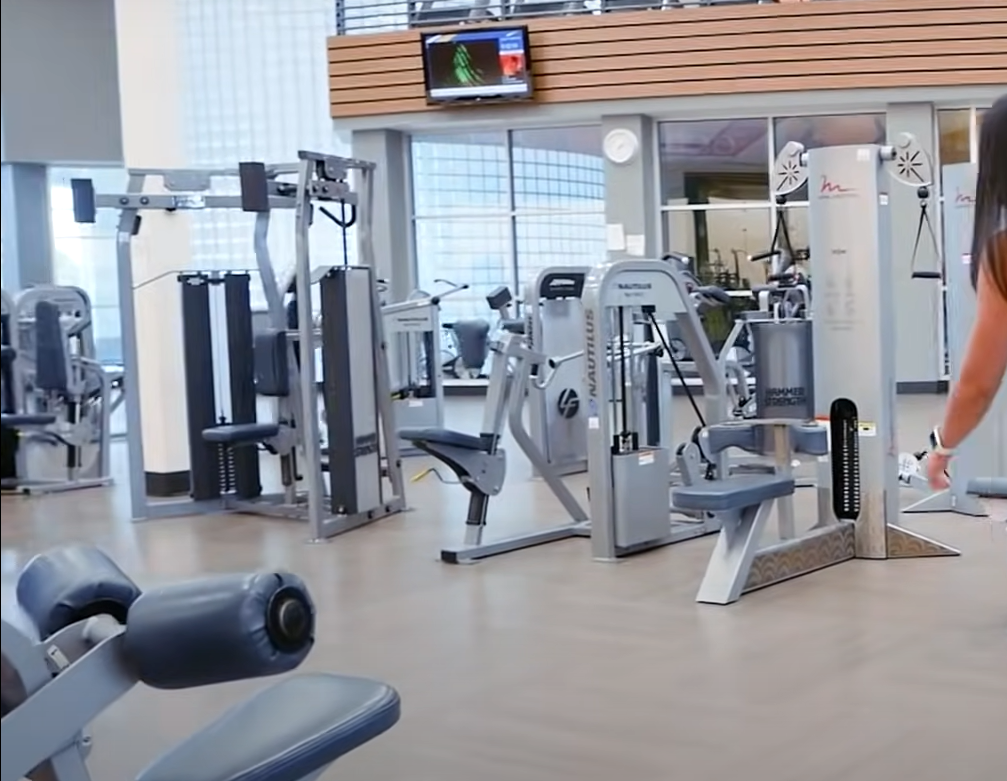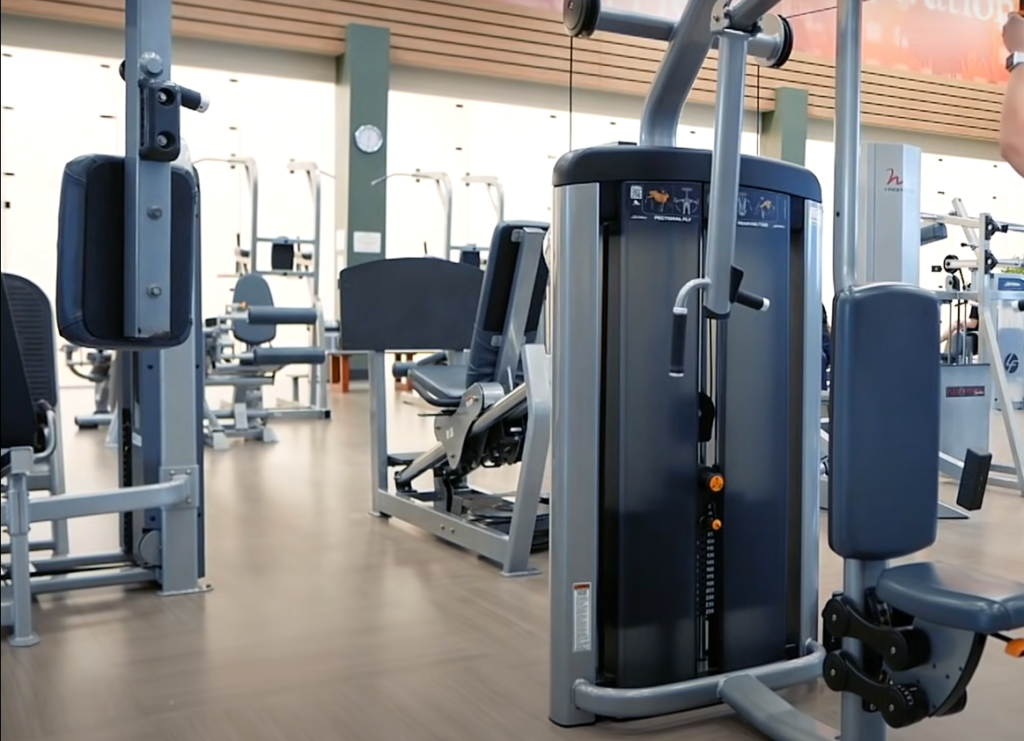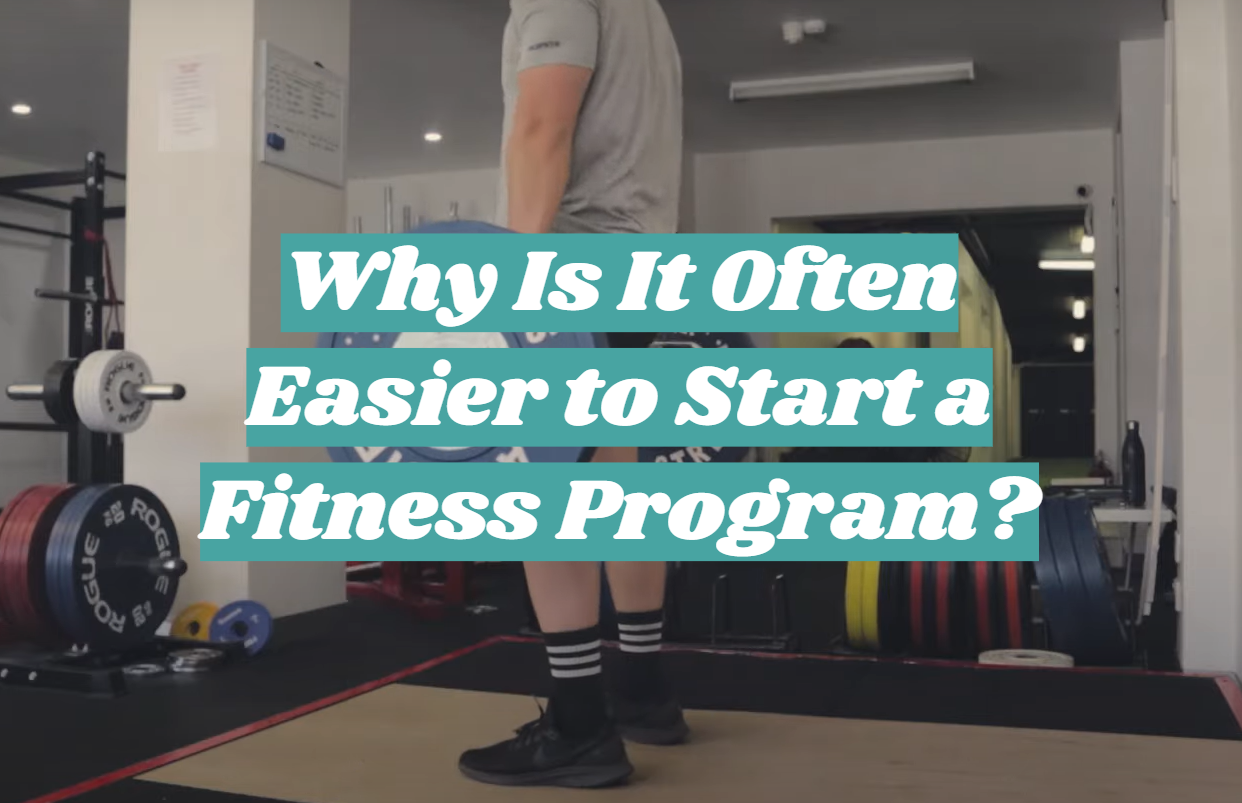Starting a fitness program can be a daunting task. It seems like there are so many things to think about: What should I eat? What exercises should I do? How often should I work out? Will it really make a difference if I only do it for a few weeks? In this article, we will answer some of the most common questions people have about starting a fitness program. We will also provide you with some helpful tips to make the process as easy and stress-free as possible!
Why is it so easy to start exercising?
Motivation
Many people find it easier to start exercising when they have a specific goal in mind. Maybe you want to lose weight, tone your muscles, or improve your overall health.
It will be much easier to stick with a program if you have a clear reason for doing so!
Another thing that can help motivate you to start exercising is seeing results. Even if it takes a few weeks or months to see significant changes, knowing that you are slowly but surely making progress can be extremely motivating. Set small goals for yourself at first and celebrate each one as you reach it! This will help keep you on track and motivated to continue.
Perceived Competence
One reason it may be easier to start a fitness program is because of what’s known as the “sunk cost fallacy.” This is when we feel like we have more to lose if we quit something than if we never started it in the first place. For example, you may have spent months saving up for a gym membership or investing in workout gear. If you don’t go to the gym or use that equipment, then it feels like you wasted your money. So starting a fitness program can help you avoid that feeling of regret.
Another reason starting a fitness program may be easier than sticking with one is because of perceived competence. Perceived competence is how confident you feel about your ability to do something. When you first start working out, you may feel clumsy and uncoordinated. But as you keep at it, you’ll start to feel more confident in your abilities. You’ll see yourself making progress, and that can Motivate you to keep going.
Self-efficacy
One of the most important psychological factors that influences whether we start and stick to an exercise program is self-efficacy, or our beliefs about our ability to be successful. People with high self-efficacy believe they can accomplish anything they set their minds to, while those with low self-efficacy may doubt their ability to make changes or stick to a plan.[3]

There are a few things you can do to increase your self-efficacy:
- Set realistic goals for yourself
- Find a role model or coach who believes in you
- Break down your goals into small, manageable steps
- Focus on your successes, no matter how small
- Remember that it’s okay to make mistakes – everyone does!
If you’re struggling with self-doubt, it may be helpful to talk to a counselor or therapist who can help you build your confidence.[3]
Consistency
When it comes to starting a fitness program, one of the most important things you can do is to be consistent. It’s often easy to start a program and then give up after a few weeks or months, but if you’re consistent, you’ll see results.
One way to be more consistent is to set realistic goals.
And don’t forget to add some variety into your workouts! Boredom is one of the biggest reasons people give up on their fitness programs.9 Reasons Why It’s Often Easier To Start a Fitness Program Than To Maintain One
You Don’t Have a Plan
The first step to success is having a plan. Without a plan, it’s easy to become sidetracked and give up on your fitness goals. A good plan will help you stay focused and on track.
If you’re not sure where to start, there are plenty of resources available to help you create a workout plan that fits your needs and goals. Once you have a plan in place, it will be much easier to stick with your program and see results.[1]
You Don’t Factor in Your Lifestyle and Schedule
One of the main reasons people struggle to keep up with a fitness routine is because they try to do too much, too soon. They factor in their current lifestyle and schedule and try to make a huge change all at once. This is usually not sustainable and sets you up for failure. It’s important to be realistic about what you can commit to before starting a program. If you’re someone who doesn’t have a lot of time for working out, start small and gradually increase your volume and intensity over time.[1]

Another common mistake is not accounting for your current fitness level. If you’ve been relatively inactive, don’t expect to be able to jump into an advanced workout program right away. Ease into things and give your body time to adjust. You’ll be more likely to stick with it if you do.
You Think, “I Fell Off the Wagon” Too Quickly
The main reason people give up on their fitness programs is that they feel like they failed. They think, “I fell off the wagon” too quickly. But here’s the thing: you didn’t fail. You just had a set-back. And it’s okay to have set-backs. What’s important is that you get back on track as soon as possible.[1]
Here are some tips for getting back on track:
- Set smaller goals. Don’t try to lose 20 pounds in one month. Set a goal of losing two pounds per week. This is more realistic and achievable.
- Find a workout buddy. Having someone to work out with will make it more enjoyable and likely that you’ll stick with it.
- Join a gym. If you have access to a gym, use it! There are usually classes and other amenities that can make working out more fun.
- Get a personal trainer. A personal trainer can help you set goals, plan workouts, and stay motivated.
You Get Bored Easily
If you’re the type of person who gets bored easily, starting a fitness program may be the perfect solution for you. With so many different types of workouts and classes available, there’s bound to be something that interests you. And if you find yourself getting bored with your current workout routine, simply mix things up a bit by trying something new.
In addition, studies have shown that people who stick with a regular workout routine are less likely to experience boredom than those who don’t exercise regularly. So if you’re looking for a way to combat boredom, starting a fitness program is a great option.
You Get Injured
One of the most common reasons people give up on their fitness journey is because they get injured. It’s easy to understand why this happens – when you’re pushing your body to its limits, injuries are bound to happen from time to time. But don’t let this discourage you! There are plenty of ways to prevent injuries, and even if you do get injured, there are still plenty of ways to stay fit and healthy.[1]

Here are a few tips to avoid injuries:
- First and foremost, warm up before working out! This will help your muscles loosen up and prepare for activity, which will minimize the risk of injury.
- Second, focus on form. Make sure you’re using proper technique when lifting weights or performing any other type of exercise – this will help prevent injuries and also help you get the most out of your workout.
- Finally, listen to your body. If something feels off or hurts, don’t push through the pain – take a break or stop altogether. Pushing through pain is a surefire way to end up injured.[1]
You Don’t See Results
It can be discouraging to put in the work and not see results immediately. This is one reason why a lot of people give up on their fitness journey before they even really get started. It’s important to remember that Rome wasn’t built in a day and neither is your ideal body. Trust the process and know that if you keep at it, results will come.
Another thing to keep in mind is that everyone’s body is different. Just because your best friend sees results after a week of working out doesn’t mean that you will too. Give yourself some time to adapt to the new routine and see how your body responds.
If you’re still not seeing results after a few weeks, it might be time to switch things up. Try a different workout routine or add in some new exercises.
Remember, the journey is just as important as the destination. Enjoy the process and don’t be too hard on yourself if you don’t see results right away. Trust that they will come in time!
You Don’t Know How to Exercise
This is a common reason people give for not working out, but it’s actually not true. There are plenty of resources available to help you learn how to exercise. You can find workout videos online, in magazines, and even on TV. If you’re not sure where to start, ask a friend or family member who is fit for recommendations.
Another option is to hire a personal trainer. A personal trainer can show you how to properly perform exercises and make sure you’re using the right form. They can also create a customized workout plan based on your goals and abilities. While hiring a trainer may seem like a lot of money upfront, it can actually save you money in the long run by helping you avoid injuries and keeping you motivated.
You’re Too Stressed
Stress is one of the main reasons people find it difficult to maintain a fitness program. When you’re stressed, your body releases the hormone cortisol, which can lead to weight gain and muscle loss. Cortisol also increases your appetite, so you’re more likely to crave unhealthy foods.

To avoid this, make sure to schedule some time for relaxation and stress relief into your day.
You can also try exercise classes that focus on relaxation, such as Tai Chi or Pilates.[2]You’re Tired and Sore
The first week or two of a new fitness program is tough. You’re tired and sore, and you might not see any results yet. This is normal! Your body is adjusting to the new demands you’re putting on it. Be patient and stick with it. The more you exercise, the more energy you’ll have, and the better you’ll feel overall.
One common question people have is why they should start exercising if they’re already tired. Won’t working out just make them even more exhausted? The answer is no! A moderate amount of exercise will actually give you more energy in the long run by improving your cardiovascular health and increasing your endorphins (the “feel-good” hormones).[2]
FAQ
What is the best reason to ease into an exercise program?
The best reason to ease into an exercise program is to avoid injury. When you start a new workout routine, your body isn’t used to the movements and can be more susceptible to strains and sprains. By gradually increasing the intensity of your workouts, you give your body time to adjust and reduce your risk of injury.
Another reason to take it slow at the beginning of a fitness program is to make sure you’re doing the exercises correctly. If you jump in too quickly, you might develop bad habits that could lead to injuries down the road. Taking the time to learn proper form will help you get the most out of your workouts and minimize your risk of injury.
Finally, starting slowly gives you time to build up your endurance so you can eventually handle more intense workouts. If you try to do too much too soon, you’re likely to get burned out and give up on your fitness goals altogether. Easing into a workout routine will help you stay motivated and stick with it in the long run.
What is the benefit of starting an exercise program slowly?
The main benefit of starting an exercise program slowly is that it allows your body to adjust to the new physical activity. If you start out too quickly, you may be more likely to injure yourself or become extremely sore. Additionally, starting slowly gives you a chance to focus on proper form so that you can get the most benefit from your workout.
Another reason why it’s often easier to start a fitness program slowly is because it can help prevent burnout. When you first start exercising, it’s common to feel very motivated and enthusiastic about working out. However, this feeling doesn’t always last long-term. If you jump into a strenuous workout routine too quickly, you may find yourself getting burnt out.
Why is it important to evaluate an exercise program in which you want to participate?
Before starting any new fitness regimen, it’s always important to consult with your doctor – especially if you have any pre-existing medical conditions. But even if you’re in good health, there are still a few things you should take into consideration before getting started.
For instance, what are your fitness goals? Are you looking to lose weight, build muscle, or just improve your overall health and wellness? Once you know what you want to achieve, research different types of exercise programs to find one that will help you reach those specific goals.
It’s also important to consider your current fitness level. If you’re relatively new to working out, it’s probably not wise to jump into an advanced program that’s designed for experienced athletes.
How do I ease my workout routine?
Starting a fitness program can be difficult, but there are ways to make it easier. Many people find it helpful to ease into their workout routine. This means starting with lower intensity workouts and gradually increasing the intensity over time. This allows your body to adjust to the new activity level and reduces the risk of injury.
Another way to ease into a fitness program is by choosing activities that you enjoy. If you choose an activity that you don’t enjoy, you’re much less likely to stick with it long-term. But if you choose an activity that you actually look forward to, you’ll be more likely to stick with it and make it part of your regular routine.
Useful Video: How to start exercising when you’re unfit
Conclusion
So, there you have it! Some of the most common questions and helpful tips when it comes to starting a fitness program. Hopefully this has given you some clarity and motivation to get started on your own fitness journey. Remember, anything is possible if you set your mind to it and stay consistent. Good luck!
References:
- https://4legsfitness.com/blogs/articles/why-is-it-often-easier-to-start-a-fitness-program-than-it-is-to-maintain-one
- https://www.verywellfit.com/top-reasons-you-dont-exercise-1229759
- https://mszgnews.com/is-it-easier-to-start-a-fitness-program/










Leave a Review